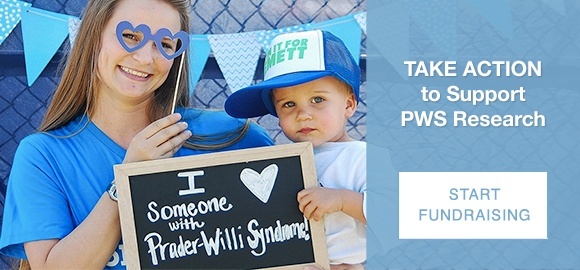In September, we were honored to host our annual meeting of researchers, physicians, and pharmaceutical companies interested in Prader-Willi or Schaaf-Yang syndromes. This event is consistently invigorating as the leaders in PWS/SYS research not only share their latest results and plans with their peers but also openly discuss challenges and begin to craft collaborative solutions.
 This year we welcomed 132 researchers from around the globe and directly supported the travel of 17 trainees from 15 institutions in 5 countries with our Travel Award program. We were able to provide the opportunity for 60 presentations (the most ever!): 20 in poster form and 40 oral presentations. Of the oral presentations, 17 included clinical studies, while the remainder focused on underlying biological processes.
This year we welcomed 132 researchers from around the globe and directly supported the travel of 17 trainees from 15 institutions in 5 countries with our Travel Award program. We were able to provide the opportunity for 60 presentations (the most ever!): 20 in poster form and 40 oral presentations. Of the oral presentations, 17 included clinical studies, while the remainder focused on underlying biological processes.
This year we noted an eruption of research in several exciting areas: brain imaging in patients, caregiver stress and coping, genetic therapies, interactions and activities of the PWS gene Snord116, newborn screening, and the 3D structure of chromosome 15.
Researchers also presented progress in the development and characterization of new organoids (brain-like models grown from single cells) and animal models of PWS and SYS and their use in preclinical drug testing. Of course, updates on the multiple clinical trials in progress and recently completed are always among the most inspiring presentations.
Abstracts of all presentations have been assembled into a booklet available for download here:
Our annal symposium also provides an opportunity for in-person meetings of several affinity groups that typically meet online: the PWS Clinical Investigation Collaborative (PWS-CLIC) comprised of clinicians from 30 sites in the US and Canada who discuss ways to improve the quality of research and care for people with PWS; the PWS Clinical Trials Consortium (PWS-CTC) uniting researchers, patients, and pharma companies to address unmet scientific, technical, clinical, and regulatory needs for PWS clinical trials; and the MAGEL2 Roundtable of researchers deeply interested in characterizing that specific protein’s function in molecular, cell, or animal models of PWS and SYS.
Next year, in lieu of the regular symposium, we will be joining forces with IPWSO and PWSA|USA to host “United in Hope—an International PWS Conference." We hope to see you there!









